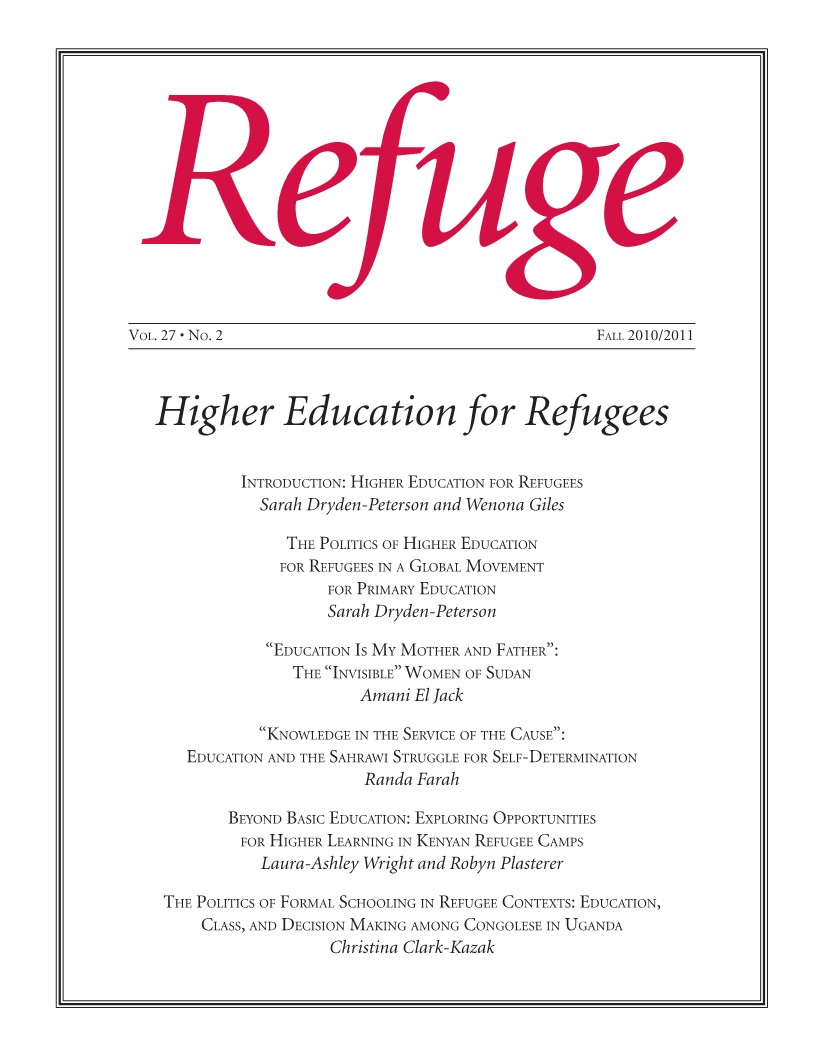The Politics of Formal Schooling in Refugee Contexts: Education, Class, and Decision Making among Congolese in Uganda
DOI:
https://doi.org/10.25071/1920-7336.34722Keywords:
Uganda, Congolese refugees, education, formal schooling, decision-making, politics, power relations, class relationsAbstract
Based on ethnographic research with over four hundred Congolese refugees in Kampala and Kyaka II refugee settlement, Uganda, this article interrogates the politics of education—both historically in the Democratic Republic of Congo and currently in migration contexts in Uganda. Formal education was an aspiration for all young people in the study, irrespective of current educational level. Moreover, it is a priority for the United Nations High Commissioner for Refugees (UNHCR) and many other organizations working with refugees. Drawing on the experiences and views of Congolese young people, this article analyzes the socio-political importance they accord to formal schooling. It then analyzes the degree to which these political aspects of education are manifested in daily decision-making processes in families, households, communities, and high-level politics. The author concludes with some reflections on how researchers and practitioners working in migration contexts can recognize and take into account the politicized nature of education.
Metrics
Downloads
Published
How to Cite
Issue
Section
License
Copyright (c) 2012 Christina Clark-Kazak

This work is licensed under a Creative Commons Attribution-NonCommercial 4.0 International License.
Refuge authors retain the copyright over their work, and license it to the general public under the Creative Commons Attribution-Non Commercial License International (CC BY-NC 4.0). This license allows for non-commercial use, reproduction and adaption of the material in any medium or format, with proper attribution. For general information on Creative Commons licences, visit the Creative Commons site. For the CC BY-NC 4.0 license, review the human readable summary.







